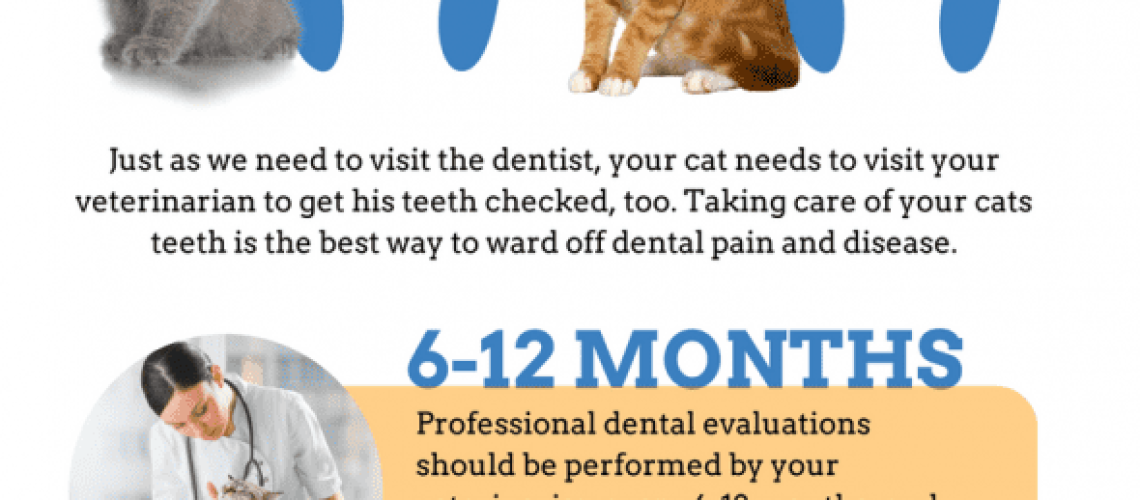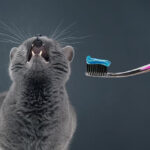Are you a proud owner of a cute little kitten? If so, there's something important you should know about kitten teeth and dental care. Taking care of your furry friend's teeth may not be the first thing that comes to mind when you think of pet care, but it's actually crucial for their overall health and well-being.
By understanding the ins and outs of kitten teeth and dental care, you can ensure that your adorable companion grows up to have a healthy smile and avoid potential health issues down the road. So, let's dive into this topic together and discover why it's worth your attention. Whether you're a seasoned cat owner or new to the world of feline companionship, this knowledge will empower you to provide the best possible care for your beloved kitty. Get ready to uncover the secrets behind those tiny teeth!
Key Takeaways:
- Kittens start getting their baby teeth around 3 weeks old.
- Kitten teeth are very sharp and can cause painful bites, so it's important to teach them not to bite or scratch humans.
- Regular dental care, such as brushing their teeth and providing dental treats or toys, is crucial for maintaining a kitten's oral health.
- Kitten teething can be uncomfortable, so offering appropriate chew toys can help alleviate their discomfort.
- If you notice any abnormalities with your kitten's teeth or they have bad breath, it's important to consult a veterinarian for proper dental examination and treatment.
The Importance of Knowing About Kitten Teeth and Dental Care
As a kitten owner, it is essential to understand the importance of dental care for your furry friend. Just like humans, kittens have baby teeth that eventually fall out and are replaced by permanent adult teeth. By knowing about kitten teeth and dental care, you can ensure that your kitten grows up with a healthy mouth and avoids potential dental problems in the future.
Why is dental care important for kittens?
Dental care is crucial for kittens because it helps maintain their overall health. Poor oral hygiene can lead to various dental issues such as gum disease, tooth decay, and even tooth loss. These problems can cause pain and discomfort for your kitten, making it difficult for them to eat or play. Additionally, untreated dental issues can lead to more severe health problems if bacteria from the mouth enters the bloodstream.
By taking proper care of your kitten's teeth from an early age, you can prevent these issues and ensure that they have strong and healthy teeth as they grow into adults. Regular dental care also helps establish good habits and makes it easier for your kitten to adjust to routine brushing.
When Do Kittens Start Getting Their Adult Teeth?
Kittens are born without teeth, but they start getting their baby (deciduous) teeth when they are around 2-4 weeks old. These tiny teeth are sharp but not fully developed. Around 3-4 months of age, their baby teeth begin to fall out as their adult teeth start coming in.
How many adult teeth do kittens have?
A typical kitten will have 26 deciduous (baby) teeth which will be replaced by 30 permanent adult teeth by the time they reach 6-7 months of age. These adult teeth include incisors, canines, premolars, and molars.
It is essential to monitor your kitten's teeth development during this time. If you notice any abnormalities or excessive discomfort, it is advisable to consult a veterinarian for guidance.
Signs of Dental Problems in Kittens
Kittens are prone to dental problems just like adult cats. It is important to be aware of the signs that indicate potential dental issues so that you can address them promptly. Some common signs of dental problems in kittens include:
- Bad breath
- Difficulty eating or chewing food
- Drooling excessively
- Swollen or bleeding gums
- Loose or missing teeth
- Visible tartar or plaque buildup on the teeth
- Pain or discomfort when touched around the mouth area
If you notice any of these signs, it is recommended to seek veterinary care as soon as possible. Early detection and treatment can prevent further complications and ensure your kitten's oral health.
Tips for Keeping Your Kitten's Teeth Clean and Healthy
Maintaining good dental hygiene for your kitten is essential for their overall well-being. Here are some tips to keep their teeth clean and healthy:
- Brush their teeth regularly: Use a specially designed toothbrush and toothpaste formulated for kittens to brush their teeth gently. Start by introducing them to the process gradually, making it a positive experience with rewards and praise.

- Provide dental-friendly toys and treats: There are toys and treats available that can help clean your kitten's teeth while they play or chew. Look for products that are specifically designed to promote dental health.

- Monitor their diet: Feed your kitten a balanced diet that promotes good oral health. Avoid excessive sugary or sticky foods that can contribute to tooth decay.
- Schedule regular veterinary check-ups: Regular dental check-ups with a veterinarian are essential to monitor your kitten's oral health and address any potential issues early on.
When to Take Your Kitten for a Dental Check-up
It is recommended to take your kitten for a dental check-up as part of their overall wellness examination. The first dental check-up should ideally occur around 6-8 months of age when their adult teeth have fully grown in. However, if you notice any signs of dental problems earlier, it is advisable to schedule a visit with the veterinarian as soon as possible.
A dental check-up involves an examination of your kitten's teeth, gums, and mouth for any signs of abnormalities or potential issues. The veterinarian may also perform a professional cleaning if necessary.
Tips for Making Brushing a Kitten's Teeth Easier and Less Stressful
Brushing a kitten's teeth can be challenging initially, but with patience and positive reinforcement, it can become easier over time. Here are some tips to make the process less stressful:
- Start early: Introduce your kitten to tooth brushing at a young age so they become accustomed to the process. The earlier you start, the more accepting they will be.
- Use positive reinforcement: Reward your kitten with treats or praise after each successful tooth brushing session to create a positive association with the activity.
- Take it slow: Gradually increase the duration and intensity of tooth brushing sessions over time. Start with short sessions and gradually work your way up to longer ones as your kitten becomes more comfortable.
- Be gentle: Use gentle, circular motions to brush your kitten's teeth. Avoid applying too much pressure, as this can cause discomfort or injury.
- Make it a routine: Establish a regular tooth brushing schedule for your kitten. Consistency is key in maintaining good dental hygiene.
Remember, patience and consistency are crucial when it comes to brushing your kitten's teeth. With time, practice, and positive reinforcement, you can help ensure that your furry friend has a healthy and happy smile!
Choosing the Right Toothbrush and Toothpaste
Types of Toothbrushes
When it comes to brushing a kitten's teeth, choosing the right toothbrush is crucial. Look for a toothbrush specifically designed for cats or kittens. These toothbrushes usually have smaller heads and softer bristles, making them more comfortable for your furry friend. Avoid using human toothbrushes as they may be too harsh on their delicate gums.
Types of Toothpaste
Using toothpaste formulated for cats is essential to ensure their safety and health. Human toothpaste contains ingredients that can be harmful if swallowed by cats. Cat toothpaste comes in various flavors like chicken or fish, which can make brushing more enjoyable for your kitten.
Tips:
- Introduce your kitten to the toothbrush gradually by letting them sniff and lick it before starting the brushing process.
- Start with just water on the brush to get your kitten used to the sensation before introducing toothpaste.
- Use a small amount of cat toothpaste on the brush, about the size of a pea.
- Be patient and gentle while brushing, using circular motions along the gum line.
Remember, regular dental care is vital for your kitten's overall health. By choosing the right toothbrush and toothpaste, you can make brushing a more pleasant experience for both you and your furry friend.
Making Brushing a Fun Activity
Reward System
Implementing a reward system can make brushing your kitten's teeth an enjoyable activity. After each successful brushing session, reward your kitten with treats or praise. This positive reinforcement will help create a positive association with teeth brushing.
Playful Approach
Engaging in playtime before brushing can help relax your kitten and distract them from any anxiety they may feel about having their teeth brushed. Use interactive toys or play with them using a feather wand to get them in a playful mood.
Tips:
- Establish a routine by brushing your kitten's teeth at the same time every day.
- Keep the toothbrush and toothpaste in a designated area, making it easily accessible for daily use.
- Make sure to use gentle, soothing tones while brushing to keep your kitten calm and relaxed.
- Gradually increase the duration of each brushing session as your kitten becomes more comfortable.
By incorporating fun elements into the teeth-brushing routine, you can turn it into an enjoyable bonding experience with your furry companion.
In conclusion, it's important to know that kittens go through teething just like humans do. Taking care of their teeth from a young age can prevent dental problems in the future. Regular brushing and providing appropriate chew toys can help keep their teeth healthy and strong.
Should I be cleaning my kittens teeth?
Starting a regular tooth brushing routine for your cat when they are still young is highly recommended. However, it is important to consult with your vet first to ensure that there are no underlying oral health issues that need to be addressed before brushing their teeth. Even young kittens can have dental problems that require attention before starting a dental routine.
When should I start brushing my kittens teeth?
The ideal time to begin brushing your cat's teeth is when they are still young kittens. It may take longer for an older cat to adjust to using a toothbrush. According to Dr. Coates, it is recommended to start brushing a kitten's teeth at around 8 to 10 weeks old so that they become accustomed to the process as a regular part of their life. This advice was given on February 23, 2022.
How often do you clean kittens teeth?
To prevent the build-up of plaque and tartar, it is recommended to brush your cat's teeth at least three times a week. The ideal time to teach your cat to accept brushing is when they are still a kitten.
Should I brush my kittens teeth when teething?
Although brushing your cat's teeth is crucial for dental care and should begin when they are kittens, it is recommended to avoid brushing during the teething stage as it can cause pain. It is important not to create a negative association between brushing and discomfort, as it may hinder successful dental care in the future.
Can I brush my 3 month old kittens teeth?
You should start taking care of your kitten's teeth at a young age. By establishing a regular brushing routine, you can prevent tooth decay and gum issues as they grow older.
Do kittens need toothpaste?
To maintain your cat's dental health, it is crucial to have the necessary equipment for regular teeth cleaning. You can purchase complete dental kits from veterinary clinics or pet stores. It is important to note that cats should never have their teeth cleaned with human toothpaste.

















